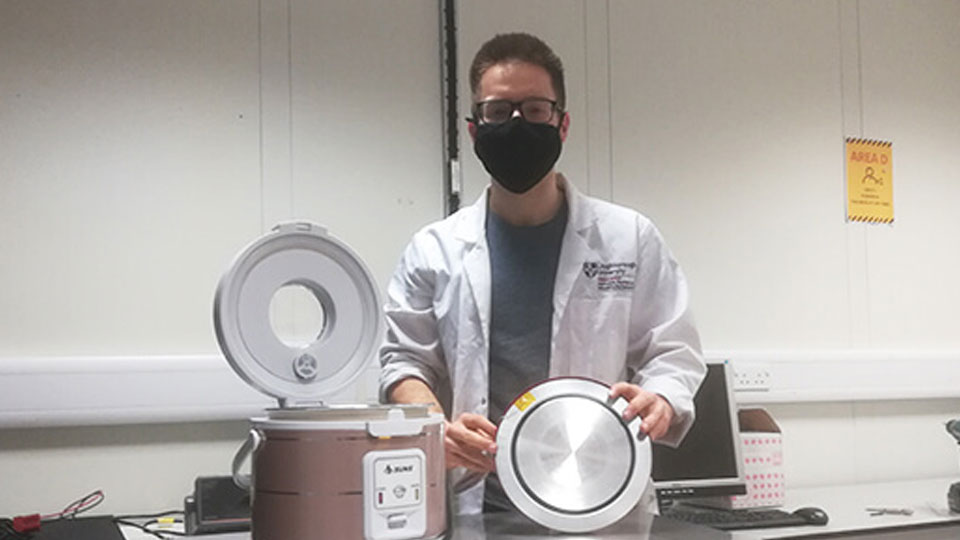The competition was delivered by Efficiency for Access with the support of Engineers Without Borders UK, funded by UK Aid and the IKEA Foundation. It is a global, multi-disciplinary competition that empowers students to help accelerate clean energy access, as well as fostering innovation and providing experience in designing appliances.
In Sub-Saharan Africa, many people cook food on open fires, which use solid biomass fuels such as coal, charcoal, and wood. Around 4 million premature deaths each year are estimated to be caused by household air pollution linked to cooking with traditional stoves. Cooking in this way can also result in pollution, deforestation and socio-economic problems that stem from the collection and use of solid fuels.
To tackle this, Tommy Ross, designed an affordable, solar battery-powered cooker for use in Sub-Saharan Africa. This innovation could free people from the burden of collecting firewood and give them time to engage in income generating activities. It can also provide a safer and more reliable alternative to dirty cookstoves, reducing carbon emissions and avoiding premature deaths.
Throughout the year, the Efficiency for Access Design Challenge team ran webinars, networking and interactive events for students, which aimed to enhance their understanding of the off-grid appliance sector. Student teams were also paired with mentors who provided them with structured guidance to create their projects.
Emma Crichton, Head of Engineering, Engineers Without Borders UK, said: “We’ve been incredibly inspired by the students’ determination, creativity and approach. Even with the disruption caused by the pandemic, the ideas the students have produced have been truly excellent.”
Tommy added: “It is wonderful that my work has been recognised by industry experts from a range of off-grid sectors. I would like to thank Richard Blanchard, my project supervisor, and Nigel Monk for the support that they provided during this project. I am also hugely grateful to everyone involved in running the design challenge, especially for the wealth of information that was provided through webinars and the funding that was made available for prototyping my designs."
